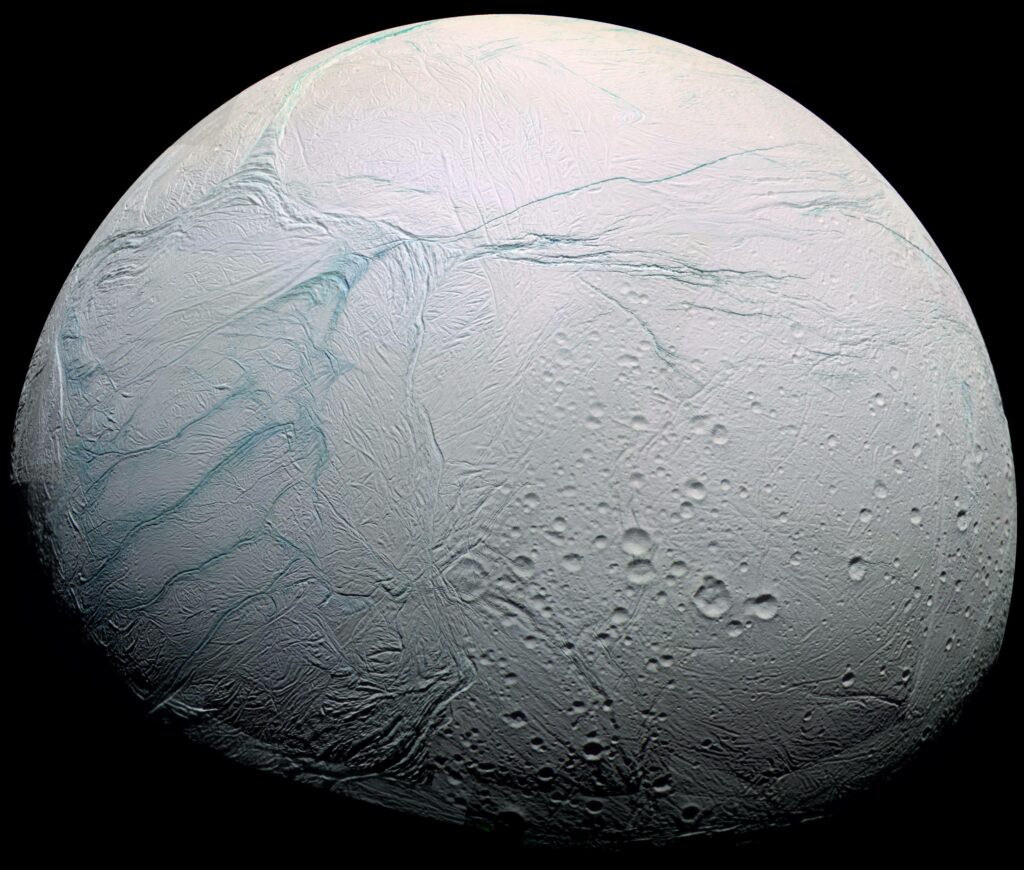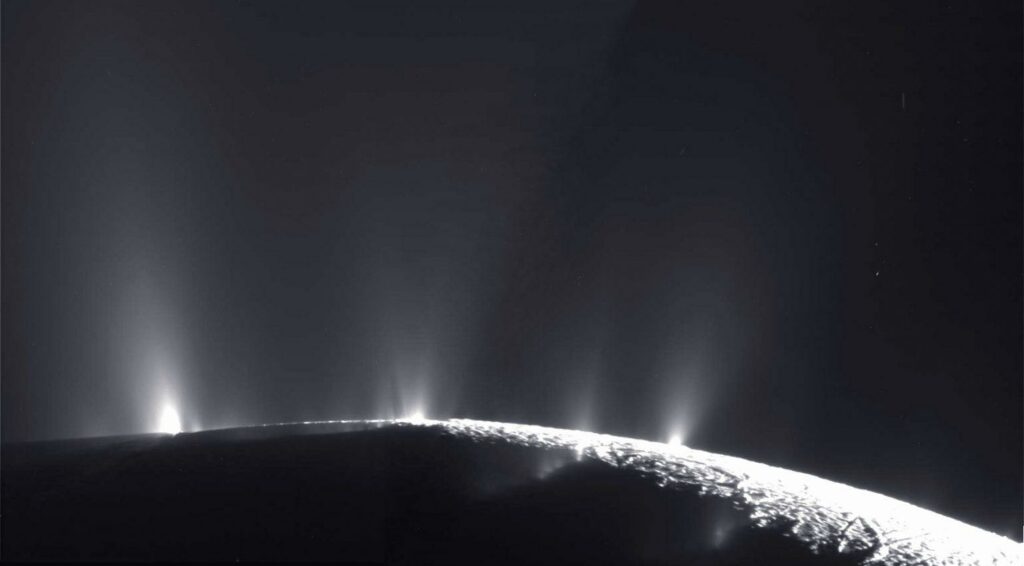During the analysis of data collected by the Cassini mission, an international team of researchers found traces of phosphorus compounds in the Enceladus ocean. This is one of the key elements necessary for the emergence and maintenance of life.

Enceladus is a 500-kilometer moon of Saturn. Despite its relatively small size, it is one of the most active bodies in the Solar System. This activity is expressed in regular emissions of geysers at the south pole of the moon. The source of their recharge is the subsurface ocean located under the icy crust of Enceladus.
Over the years of its mission, the Cassini spacecraft flew through Enceladus emissions several times, which made it possible to study their composition. During the subsequent analysis, the scientists have found out that the subsurface ocean of the moon contains a large number of minerals and organic molecules, including substances necessary for the formation of amino acids. All this has significantly raised interest in Enceladus, which is now considered one of the most promising places to search for extraterrestrial life in the Solar System.

In the course of the new study, scientists focused on data collected by the Cassini space dust analyzer during the flights of Enceladus, as well as the E ring (it consists of its emissions). They have been able to reveal that some of the ice particles contain large amounts of sodium phosphates: compounds containing sodium, oxygen, hydrogen and phosphorus. Its concentration is at least a hundred times higher than the concentration of this substance in the oceans of the Earth.
According to the researchers, such a high concentration of phosphates is the result of the interaction between carbonate-rich water and minerals at the bottom of the Enceladus ocean. A similar mechanism may exist on other oceanic worlds of the Solar System.
The discovery of phosphates is an important milestone in understanding the processes going on in the Enceladus ocean. In addition, it makes even more attractive the idea that some kind of life may exist in the ocean of the moon. Phosphorus combines with sugars and forms a framework of DNA molecules, and also helps to repair and maintain cell membranes. The discovery will certainly strengthen the voices of scientists who are in favor of sending a new mission to Enceladus, which would be able to explore this very unusual world in more detail.
According to https://www.nasa.gov
Follow us on Twitter to get the most interesting space news in time
https://twitter.com/ust_magazine

